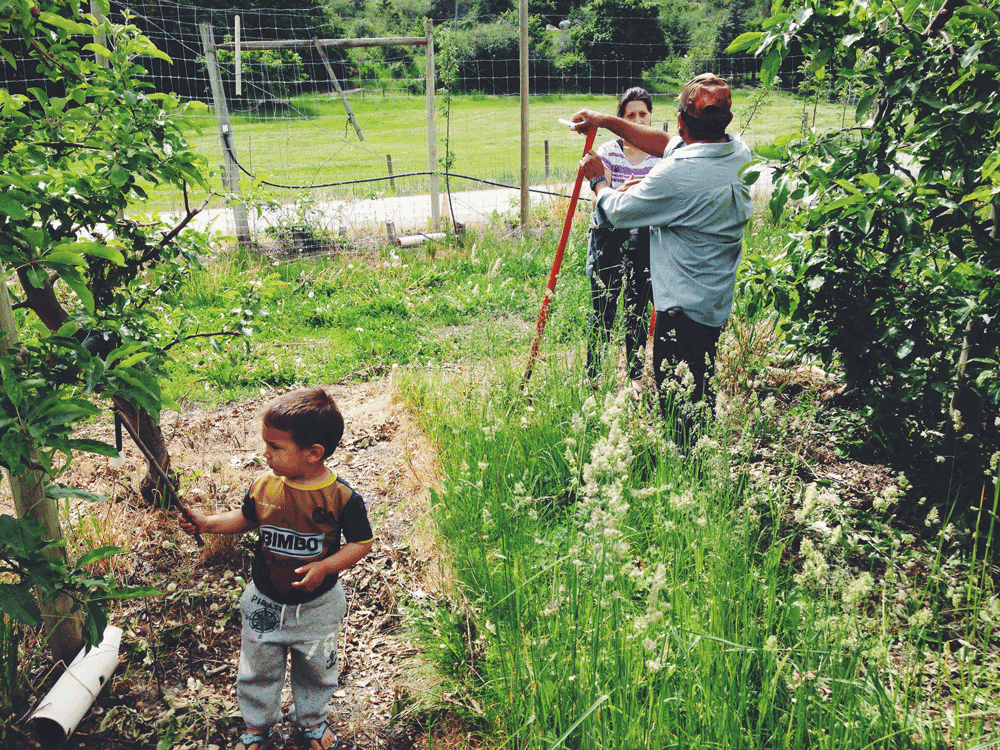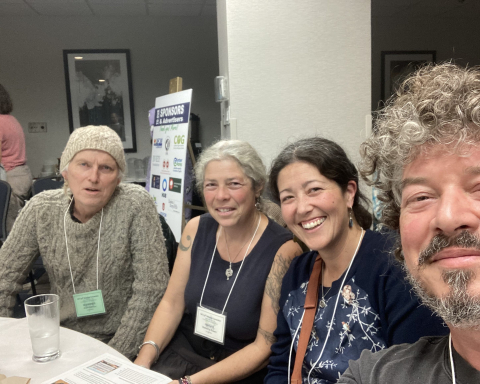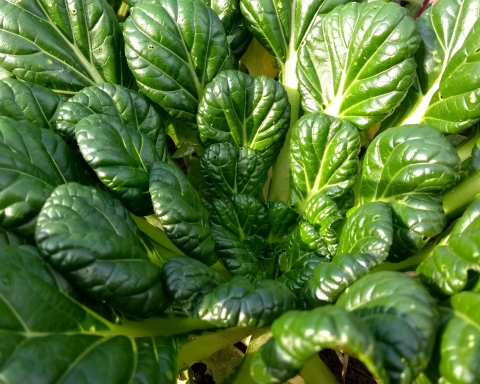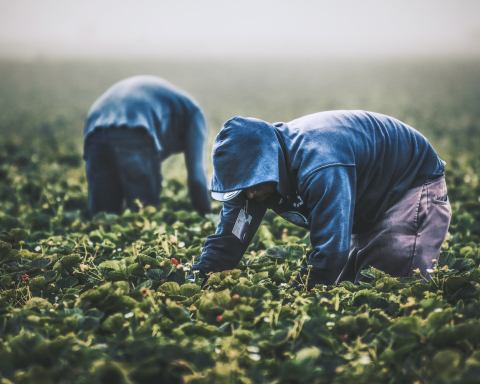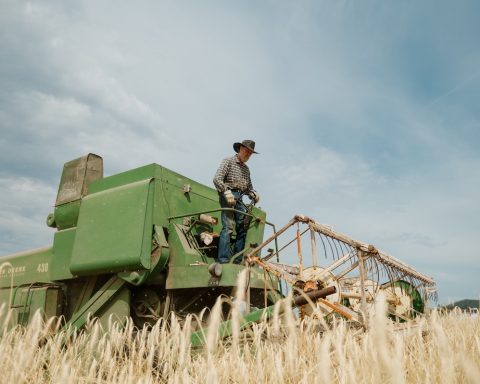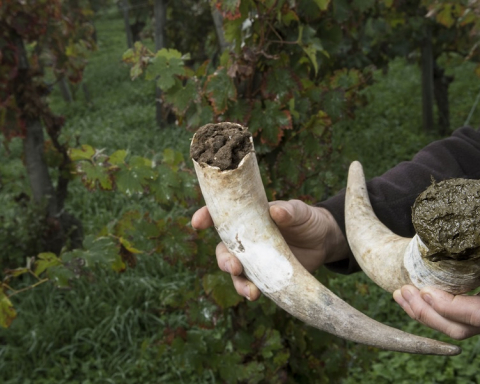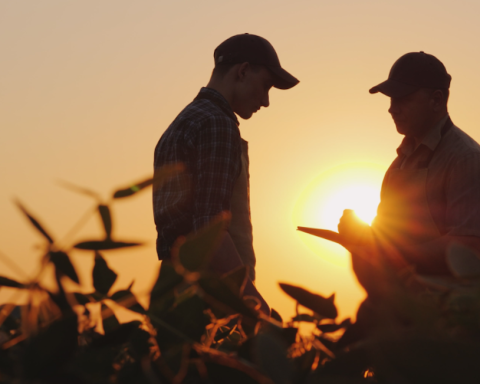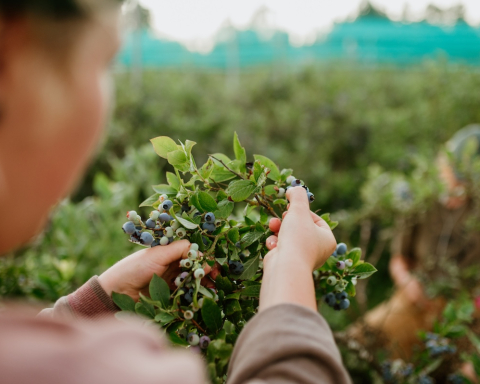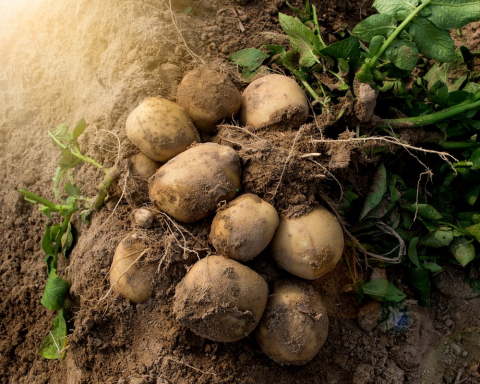Robyn Bunn, Elise Hjalmarson and Christine Mettler, collective members of Radical Action with Migrants in Agriculture (RAMA) Okanagan. RAMA is a volunteer, grassroots collective of community organizers that work to address the disenfranchisement and injustices faced by seasonal agricultural workers in the Okanagan.
The Invisible ‘Foreign’ Labour in ‘Local’ Food
[the boss] only sees [us] as a worker—not as a human, as a person” – Migrant Farm Worker in the Okanagan
As you know, agriculture—particularly organic agriculture, which typically relies less on chemicals and machinery—is labour intensive. Farming is physically demanding, dirty, and sometimes dangerous work, so much respect should be given to all the people who grow our food.
The International Federation of Organic Agricultural Movements (IFOAM) recognizes the high need for labour in organic farming, and lays out principles that acknowledge workers and their right to fair, dignified, respectful treatment as they labour in the fields that feed the world.
In the realm of organic food production, there is an increasing move to center and embrace the role of farmers in putting food on our plates. However, while farmers occupy a position of prominence in our communities, there is not nearly as much attention paid to farm workers, despite their significant role in food production. As a result, issues faced by farm workers may sometimes be overlooked or ignored by the organic agricultural community.
This is particularly salient as it relates to hardships faced by seasonal migrant agricultural workers in BC and in other provinces. Due to labour shortages, farm owners in BC—including organic farmers—are increasingly turning to Canada’s Seasonal Agricultural Worker Program (SAWP) to fill their labour needs with temporary foreign workers.
So what does it mean to be a temporary foreign farm worker in Canada, and how does support for temporary foreign workers align with tenets of philosophies behind organic farming?
The Seasonal Agricultural Worker Program
The Seasonal Agricultural Worker Program (SAWP) is a bilateral agreement between the federal governments of Canada and Mexico, and between Canada and several nations in the Caribbean. The program has been in place since 1966, after farm owners in Ontario lobbied to create a labour pool necessary to sustain their changing industry. The continual shortage of farm workers resulted in the expansion of the program to other provinces. In 2004, BC farm owners began bringing SAWP workers from Mexico and they were joined in 2010 by workers from the Caribbean.
Since its introduction, the program has grown exponentially, and each year more and more people are brought to work on Canadian farms. Between 2006 and 2015, the number of temporary migrant agricultural workers has more than tripled in BC. In 2015, just under 9,000 workers came to BC. This includes workers in the SAWP program (the vast majority), as well as other agricultural workers in the “high skilled” and “low skilled” streams of Canada’s overarching Temporary Foreign Worker Program. Although no statistics are available, RAMA estimates that over a third of these workers are in the Okanagan. Workers come for as little as two months to as many as 10 months out of the year, before being required to return to their home countries.
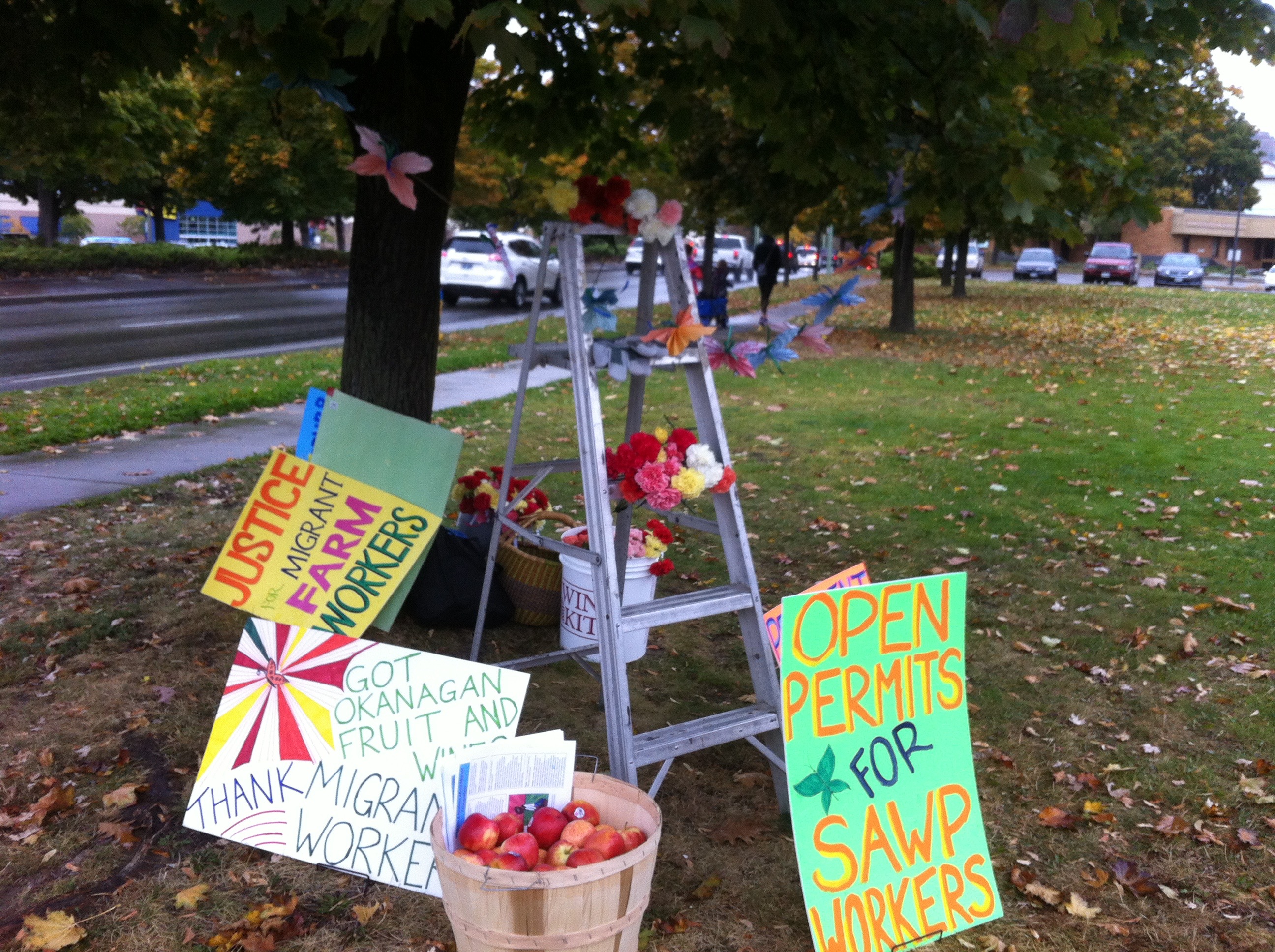
Model with a Rotten Core
At first glance, the SAWP program may seem like a “win-win.” Farm owners get the labour power needed to grow and process their products, and workers earn money to take care of their families back home. Although it sounds like it satisfies the needs of all parties, there are many issues with the temporary migrant worker model.
The most salient issue and the one that sets the tone for all others is that workers have legislated impermanence: the program stipulates that they are not allowed to stay in Canada, no matter how many hours they put in. This means that workers’ job security is contingent on their ability to come back to Canada and work again next year, and their likelihood of coming back next year is heavily influenced by positive recommendations from their employers. This sets workers up to be particularly vulnerable to exploitation. They want good recommendations, so many workers agree to work that is unsafe, such as applying pesticides without proper gear, or tolerating poor conditions. This is further compounded by the fact that SAWP workers’ visas are tied to one employer. If a worker does indeed experience significant problems at work, they cannot simply quit and find a job in Canada with another employer, like other employees have the freedom to do.
Second, employment contracts stipulate that housing be provided and that rent is set at a certain rate. Due to the costs of transporting workers to and from farm, most employers house their workers on-farm, in structures that typically leave much to be desired, to say the least. This puts SAWP workers in the rare position of living at their workplace, where employers may continuously surveil their actions.
RAMA has worked with SAWP workers whose bosses expect them to be available for work around the clock, requesting that they work long days (sometimes up to 16 hours), or on their scheduled days off. Despite the fact that workers pay rent, many are also subjected to ‘house rules’ such as not being allowed to have visitors, or having evening curfews. Additionally, as would be expected, farms are located far from any services such as doctors, grocery stores, or banks, and often not on regular transit routes, leaving workers isolated and stranded on-farm without their own means of transportation.
Third, and importantly, workers who come to Canada through the SAWP have no pathway to permanent residency or Canadian citizenship. Some have been coming to work in Canada for decades, which puts strains on families and relationships at home as mothers and fathers have to leave their families behind for months at a time. They are typically allowed to stay for up to 8 months of the year, and must return home by December 15. This makes clear that they are valued only for their labour, and are not invited to become members of Canadian communities. This is illustrated through the frequent practice of ‘medical repatriation’, where workers are sent back to their home country if they are injured on the job and are unable to work for the season. In many of these cases, workers face overwhelming obstacles to accessing their rightfully owed workers compensation.
Fourth, although workers pay into social security programs like employment insurance and parental benefits, they cannot access those benefits. When workers are forced to leave at the end of the year, their Social Insurance Numbers are also cancelled for the time they are away from Canada. This precludes their ability to access social security benefits. Although seasonal workers in Canada can access employment insurance benefits in the uncertain offseason, migrant workers cannot.
The above is not an exhaustive list of issues with the SAWP, but they paint a good picture of ways in which the program sets up migrant workers as a “second tier” labour force in Canada. RAMA is always careful to note that abuses within the SAWP program are not a matter of “a few bad apples”; rather, the nature of the program itself sets up a structure in which workers are vulnerable to exploitation and have little control over or recourse to address their working and living conditions. In short, it is not fair.
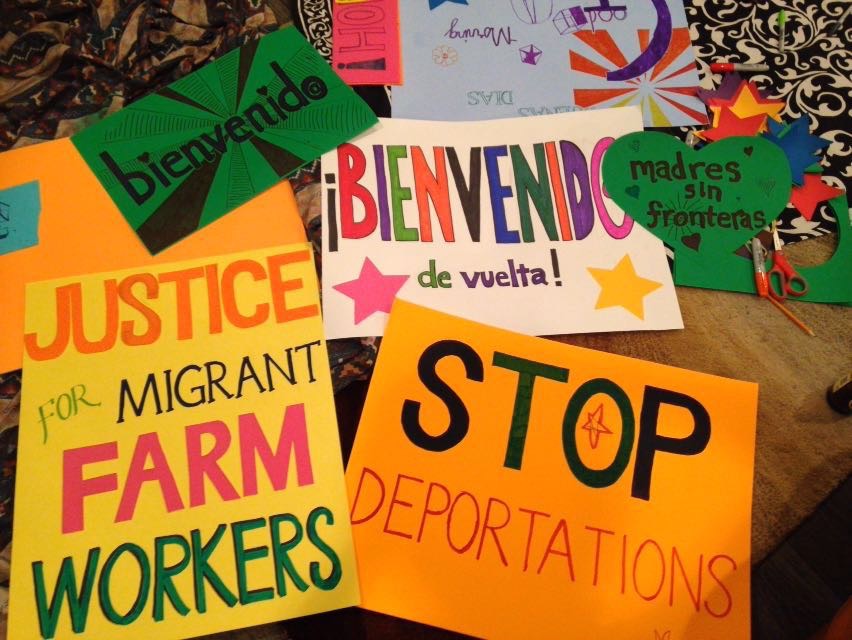
Supporting Farm Workers
Radical Action with Migrants in Agriculture (RAMA) strives to redress these injustices and support workers in the Okanagan Valley by engaging in direct support work with farm workers and by undertaking advocacy and public awareness campaigns. Many workers arrive in BC with very little information about available services and supports (which are few and hard to access), may not know much of the language, or what their rights are in Canada. Some hardly leave their place of employment at all while they are here, and to add to their feelings of isolation, often face discrimination from local residents when they enter local communities.
RAMA works to make our communities more inclusive of migrant farm workers, and ensure that they feel welcome and recognized for the work they do, which contributes greatly to local industry. We also advocate for just and fair conditions for workers—principles that are also supported by the philosophy of organic farming.
Farm Labour Within Organic Philosophy
Of the Four Principles of organic agriculture, as established by IFOAM, the Principle of Health and the Principle of Care both include the well-being of people in farming alongside health and care of animals, ecosystems, and the environment. The Principle of Fairness refers specifically to workers, among others:
“Fairness is characterized by equity, respect, justice and stewardship of the shared world, both among people and in their relations to other living beings. This principle emphasizes that those involved in organic agriculture should conduct human relationships in a manner that ensures fairness at all levels and to all parties—farmers, workers, processors, distributors, traders and consumers. Organic agriculture should provide everyone involved with a good quality of life, and contribute to food sovereignty and reduction of poverty.” http://www.ifoam.bio/sites/default/files/poa_english_web.pdf
Since its inception, IFOAM, as the global body representing organic agriculturalists, has supported the rights and dignity of farm workers and as such, those rights and freedoms are at the core of the philosophy behind organic agriculture. In its aim to spread and expand organic agriculture, the organic movement also includes the mandate of advocating for farm workers rights.
Despite this position, the SAWP sets up circumstances that are patently unfair. However, many of the problems that arise from the structure of the SAWP program could be resolved by the following policy changes:
- Open work permits. If migrant workers could change jobs as freely as other employees, then they would be less likely to accept poor working conditions, forcing the standards for all farm workers to go up.
- Allow access to benefits. It is fundamentally unfair that migrant workers pay into Canadian benefit coffers through deductions to their paycheques, but are denied the right to collect Parental Benefits, Employment Insurance, or Canadian Pension Plan funds upon retirement.
- House SAWP workers off-farm, preferably in community. Instituting policy that stipulates an end to the isolation of migrant farm workers would make strides towards community inclusion of farm workers and add to feelings of belonging. It would also increase worker’s mobility and access to health care and other necessary services.
- Grant Permanent Residency to all migrant workers upon arrival. Like opening up work permits, having permanent status leaves migrant workers less dependent on their employers and would allow them to leave poor working conditions, making them less vulnerable to exploitation and abuse. It would also enable them to start to build a life in Canadian communities. If migrant workers are a valuable work force, they should also be considered valuable community members, be able to bring their families, and become part of our communities.
As growers, workers, eaters, and community members, we all have a responsibility to each other to ensure that everyone involved in agricultural production is treated with fairness and respect. RAMA supports workers and aims to build more inclusive, equitable communities that recognize the struggles of temporary migrant farm workers and come together to mitigate the challenges that SAWP workers face. Join RAMA and the national coalition of organizations advocating for migrant workers’ rights, write to your political representatives about your concerns, and talk to your neighbours and fellow growers. Let’s make fair and dignified conditions for migrant farm workers part of the growing movement for a fair, healthy, and sustainable food system.
Honor the hands that harvest your crops” – Dolores Huerta, Leader in the United Farm Workers Movement
RAMA is a migrant justice collective that advocates for Latin American and Caribbean migrant farmworkers in the unceded Syilx territories of the Okanagan Valley. We work to build radically inclusive and more socially just communities by engaging in political advocacy, accompaniment, direct support work, public awareness campaigns, and the documentation of workers’ conditions and experiences. We are a volunteer-run, not-for-profit group.


